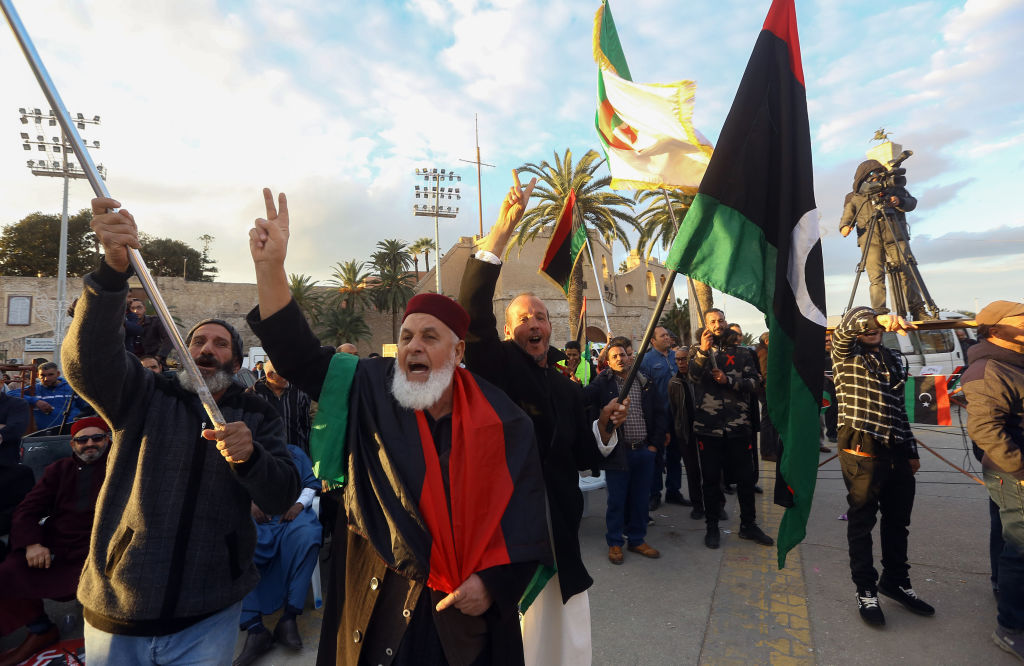ADF STAFF
Russia is exploiting politically divided Libya, with its abundant natural resources, to exert more influence on the continent, especially in the Sahel region, a recent report said.
The Kremlin’s work will be headed by Africa Corps, formerly known as the Wagner Group, which will be based in Libya. The group plans to spread a new form of “Russian colonialism,” according to a recent report by the Royal United Services Institute.
“The Russian playbook has been remarkably consistent for decades,” the report said. “The overall approach is to use information operations and active measures to polarize a target population, mobilize factions in support of allied elites and paralyze support for opposing elements of a country’s leadership.”
In Libya, Russia continues to support Field Marshal Khalifa Haftar, the Libyan National Army leader based in Benghazi. Haftar is committed to seizing Tripoli and toppling Libya’s internationally recognized Government of National Accord.
“The objectives of Wagner in Libya have been mainly to get access to oil revenues more or less indirectly through supporting Haftar’s armed forces, but also to ensure that it can access the broader African continent,” Tim Eaton, senior research fellow at the London-based Chatham House, told Deutsche Welle. “In that sense, Libya has been functioning as a bridgehead.”
In mid-April, Africa Corps fighters and 6,000 tons of military equipment began arriving via cargo planes at Brak al-Shati in southern Libya and cargo ships at Tobruk. Russia also plans to build a naval base at Tobruk, where its operatives could influence traffic across the Mediterranean, expand smuggling and perhaps disrupt shipping.
The mercenaries also support Sudan’s Rapid Support Forces (RSF) in the country’s protracted civil war. They have been transporting portable surface-to-air missiles, ammunition, fuel and other cargo from Libya to the RSF, according to the German Institute for Global and Area Studies.
“While Africa Corps appears to be the sharp end of Russia’s security strategy in the turbulent Sahel region, its long-term goal will undoubtedly be to expand its influence across Africa,” wrote Institute for Security Studies researcher Nicodemus Minde.
After meeting with Haftar last year, Africa Corps head Gen. Andrei Averyanov visited Burkina Faso, the Central African Republic, Mali and Niger to offer security in exchange for access to the region’s abundant natural resources. Russia has extracted $2.5 billion worth of gold from Africa in the past two years, which is likely to help fund its war in Ukraine, according to the Blood Gold Report.
In February, the mercenaries took control of Mali’s Intahaka gold mine, near the Burkina Faso border. Various armed groups disputed Northern Mali’s largest artisanal mine for years. Authorities recently rewrote Mali’s mining code to give the ruling junta more control over natural resources.
“In Niger, the Russians are endeavoring to gain a similar set of concessions that would strip French access to the uranium mines in the country,” Jack Watling, land warfare specialist at the Royal United Services Institute and lead author of its report, told the BBC.
Russia’s military presence has obvious benefits for junta-led countries, according to Edwige Sorgho-Depagne, an analyst of African politics at Amber Advisers. The juntas were initially transitional leaders who were supposed to organize elections “and bring about a return to democratic institutions,” Sorgho-Depagne told the BBC. “But now Russian paramilitaries are brought in to protect the military junta, allowing them to stay as long as they want.”
Africa Corps does not operate only in junta-led states. In the Central African Republic, Russian mercenaries have for years made capturing the country’s diamond market a priority, stealing and smuggling the precious gems while killing anyone who gets in their way.
Under Averyanov, two CAR companies — Mining Industries and Logistique Economique Etrangere — now stand accused of enabling the group’s security operations and illicit mining activities.

